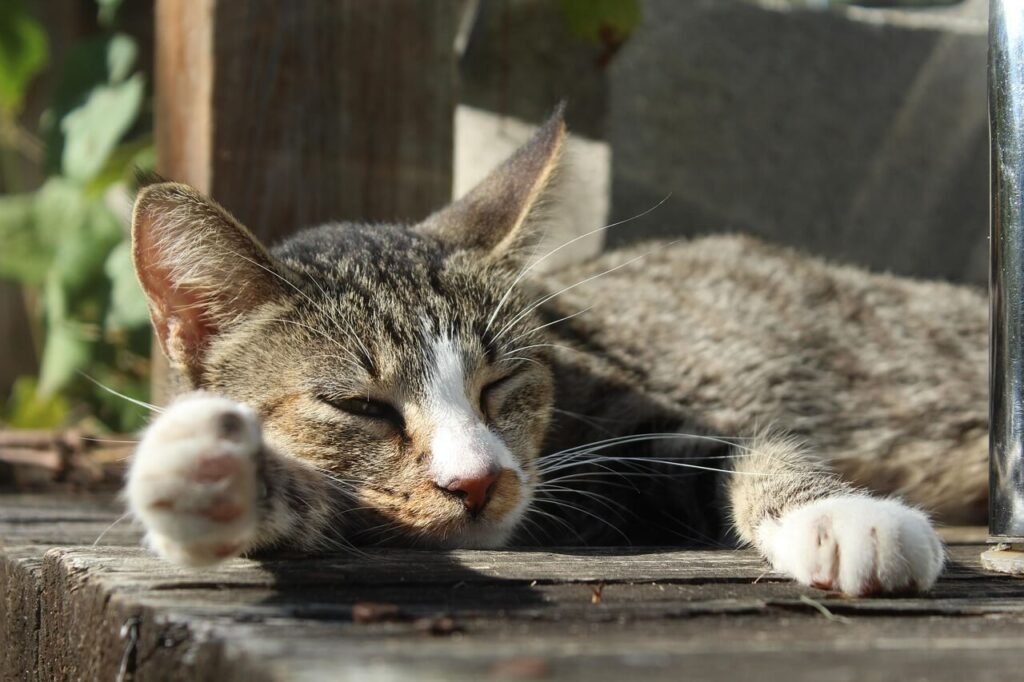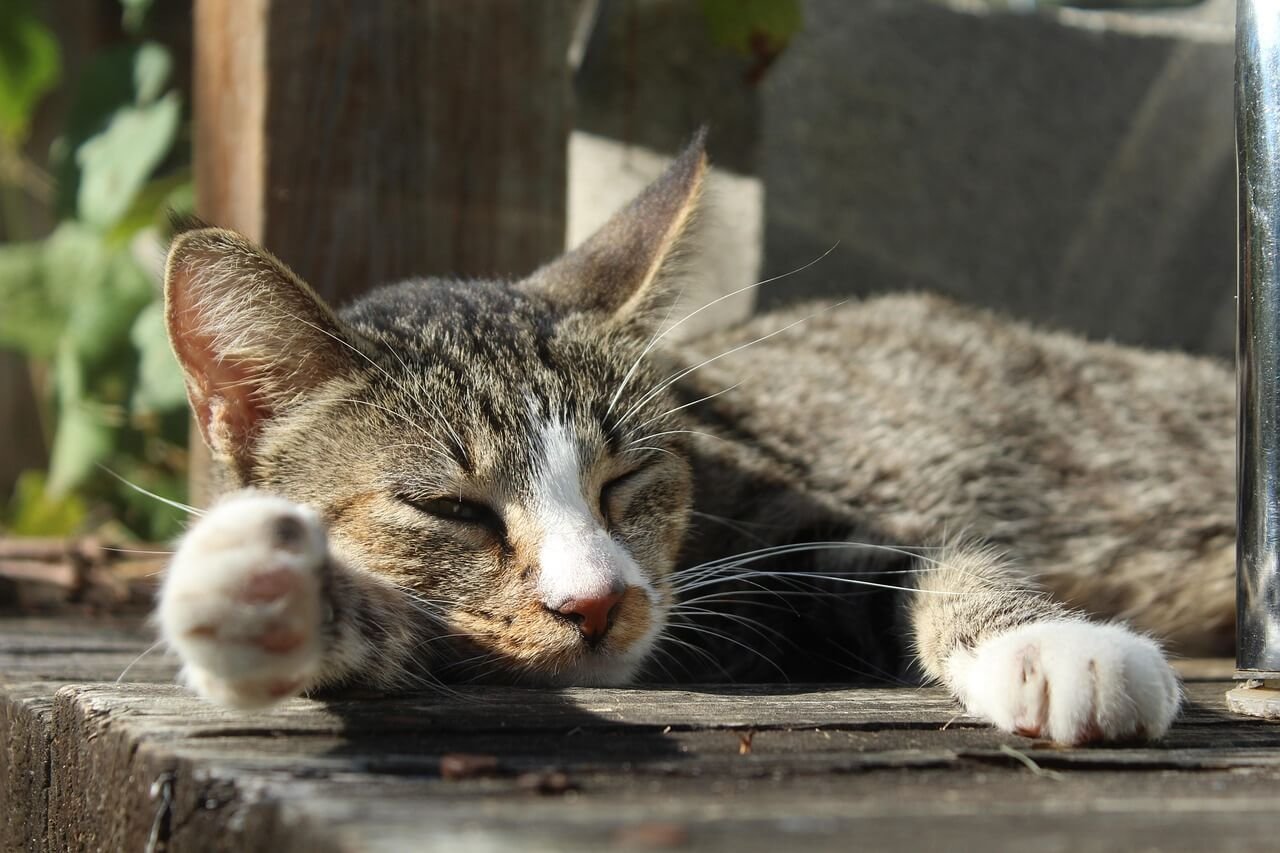Why Do Cats Lick Themselves? Unraveling the Mystery Behind This Common Feline Behavior
Cats are fascinating creatures, and one of their most distinctive behaviors is their constant grooming. Whether lounging in a sunbeam or curling up on your lap, cats seem to dedicate an impressive amount of time to licking themselves. But why do they do it? Is it purely for cleanliness, or is there more to this behavior than meets the eye? In this blog post, we’ll explore the reasons behind this instinctive habit, uncovering the science, psychology, and evolutionary factors that drive our feline friends to groom themselves so meticulously.
The Science Behind Cat Grooming
Grooming is not just a casual activity for cats—it’s a deeply ingrained behavior rooted in biology and evolution. Here are some key scientific reasons why cats lick themselves:
Temperature Regulation:
Cats don’t sweat like humans do. Instead, they rely on saliva evaporation to cool down their bodies. Licking helps distribute saliva across their fur, which evaporates and lowers their body temperature.Improved Circulation:
The act of licking stimulates blood flow to the skin, promoting healthier skin and coat.Pain Relief Mechanism:
Licking releases endorphins, which can help cats cope with pain or discomfort.Wound Cleaning:
Saliva contains enzymes that have mild antibacterial properties, helping to clean minor wounds and prevent infections.Marking Territory:
Cats have scent glands on their tongues, and grooming helps them mark their bodies with their unique scent, reinforcing their sense of ownership over their territory.
Understanding these biological functions highlights how essential grooming is to a cat’s overall health and well-being. It’s not just about looking good—it’s about feeling good too!
Psychological Reasons for Grooming
While physical benefits play a significant role, grooming also serves important psychological purposes for cats. Let’s take a closer look at the mental and emotional aspects of this behavior:
Stress Relief:
Licking provides comfort during times of anxiety or uncertainty, acting as a self-soothing mechanism similar to how humans might bite their nails or twirl their hair.Routine and Habit Formation:
Cats thrive on routine, and grooming is often part of their daily ritual. It gives them a sense of control and predictability in their environment.Bonding Through Allogrooming:
When cats groom each other (a behavior known as allogrooming), it strengthens social bonds and establishes trust within a group.Distraction from Boredom:
Indoor cats, especially, may groom excessively when they lack stimulation or enrichment in their environment.Comfort After Trauma:
Cats often groom themselves after experiencing something unsettling, such as a loud noise or an unfamiliar interaction.
These psychological factors demonstrate that grooming is not only practical but also deeply tied to a cat’s emotional state. It’s a way for them to find balance and peace in their world.
Check this guide 👉 Why Do Cats Knock Things Off Tables? Best 7 Behavior Tips!
Check this guide 👉 Why Does My Cat Lay on My Clothes? Best 7 Behavior Tips!
Check this guide 👉 Why Is My Cat Growling? best 7 Behavior Tips!

Physical Benefits of Grooming | Psychological Benefits of Grooming |
|---|---|
Regulates body temperature | Reduces stress and anxiety |
Stimulates blood circulation | Provides comfort through routine |
Cleans minor wounds | Strengthens social bonds |
Prevents matting of fur | Acts as a distraction from boredom |
Removes parasites | Helps recover from trauma |
Signs of Excessive Grooming
While grooming is natural and healthy, excessive licking can sometimes indicate underlying issues. If you notice your cat grooming more than usual, consider these potential causes:
Skin Irritation or Allergies:
Cats may lick excessively to relieve itching caused by allergies, fleas, or skin conditions.Behavioral Disorders:
Conditions like obsessive-compulsive disorder (OCD) can lead to compulsive grooming behaviors.Boredom or Lack of Stimulation:
Without enough toys, activities, or companionship, cats may turn to grooming as a form of entertainment.Pain or Discomfort:
Over-grooming could be a sign of injury, arthritis, or another medical issue causing pain.Stress or Anxiety:
Changes in the household, such as moving homes or introducing new pets, can trigger stress-related grooming.
If your cat shows signs of excessive grooming, consult a veterinarian to rule out any health problems and address behavioral concerns early on.
How You Can Support Your Cat’s Grooming Needs
As a cat owner, you can play an active role in supporting your pet’s grooming habits while ensuring they stay healthy and happy. Consider these tips:
Regular Brushing:
Brushing your cat regularly reduces shedding and prevents mats, making grooming easier for them.Provide Mental Stimulation:
Engage your cat with interactive toys, puzzles, or climbing structures to keep them entertained and reduce stress-related grooming.Monitor Their Diet:
A balanced diet rich in omega fatty acids supports a shiny coat and healthy skin, reducing the need for excessive grooming.Check for Parasites:
Regularly inspect your cat for fleas, ticks, or other parasites that might cause discomfort and prompt excessive licking.Create a Calm Environment:
Minimize sudden changes or loud noises in your home to help your cat feel safe and secure.
By taking these steps, you can ensure your cat enjoys the benefits of grooming without falling into unhealthy patterns.
The Evolutionary Perspective on Grooming
Cats’ grooming habits have deep evolutionary roots, shaped by their need to survive in the wild. These instincts continue to influence their behavior today. Here are some key evolutionary reasons behind why cats groom themselves:
Camouflage and Survival:
By keeping their fur clean and free of odors, cats reduce the chances of being detected by predators or prey.Parasite Control:
Licking helps remove fleas, ticks, and other parasites that could otherwise harm their health.Social Hierarchy Maintenance:
In multi-cat groups, grooming reinforces social bonds and establishes a hierarchy within the group.Efficient Resource Use:
Cats evolved to conserve energy, and grooming is an efficient way to maintain hygiene without needing water sources.Protection from Extreme Weather:
A well-groomed coat provides insulation against both cold and heat, helping cats adapt to changing environments.
From an evolutionary standpoint, grooming has been crucial for survival, and these instincts remain deeply ingrained in domestic cats today.
Health Risks of Over-Grooming
While grooming is essential, over-grooming can lead to various health issues that cat owners should be aware of. Understanding these risks can help you identify potential problems early.
Hair Loss and Bald Patches:
Excessive licking can result in thinning fur or complete bald spots, often caused by stress or allergies.Skin Irritation and Infections:
Constant moisture from saliva can irritate the skin, leading to redness, inflammation, or bacterial infections.Increased Hairball Production:
Over-grooming means more hair ingestion, which can lead to frequent vomiting or intestinal blockages.Behavioral Changes:
Cats may become withdrawn or lethargic due to the emotional distress causing excessive grooming.Underlying Medical Conditions:
Over-grooming is sometimes linked to hormonal imbalances, pain, or chronic illnesses requiring veterinary attention.
If your cat exhibits signs of over-grooming, it’s important to address the root cause promptly to prevent further complications.
How to Encourage Healthy Grooming Habits
As a responsible pet owner, you can take proactive steps to encourage healthy grooming habits in your cat. Small adjustments to their environment and routine can make a big difference.
Provide Scratching Posts:
Scratching posts help cats shed loose fur, reducing the amount they ingest while grooming.Offer Enrichment Activities:
Toys, puzzles, and interactive play sessions divert attention away from obsessive grooming behaviors.Maintain a Stress-Free Environment:
Keep your home calm and predictable to minimize anxiety triggers that might lead to excessive grooming.Use Grooming Tools:
Regularly brushing your cat not only reduces shedding but also strengthens your bond with them.Schedule Vet Check-Ups:
Routine check-ups ensure any underlying medical issues are caught early before they escalate into bigger problems.
By fostering a supportive environment, you can help your cat maintain balanced grooming habits that contribute to their overall well-being.
Frequently Asked Questions About Cat Grooming
Why does my cat lick me?
Cats lick their owners as a sign of affection and bonding. It’s similar to how they groom other cats in their social group.
Is it normal for cats to groom all day?
Yes, cats typically spend 30-50% of their waking hours grooming. However, if it seems excessive, consult a vet.
Can grooming cause hairballs?
Yes, frequent grooming can lead to hairballs, especially in long-haired breeds. Regular brushing can help minimize this issue.
What should I do if my cat stops grooming?
A sudden change in grooming behavior could signal illness or depression. Contact your veterinarian immediately.
Do kittens groom themselves right away?
Kittens begin grooming themselves around three weeks old, but their mother usually handles most of their grooming until then.
Final Thoughts: Understanding and Appreciating Your Cat’s Grooming Habits
Cats are meticulous groomers, and for good reason. From regulating their body temperature to soothing their emotions, grooming plays a vital role in their physical and mental health. By understanding why cats lick themselves, we can better appreciate this innate behavior and provide the care and support they need to thrive. Remember, while grooming is natural, excessive licking can sometimes signal a problem, so always stay attuned to your cat’s habits. With love, patience, and attention, you can ensure your feline friend remains happy, healthy, and beautifully groomed.
Dog Tapeworm Life Cycle: Best 7 Expert Tips! – Learn how tapeworms infect dogs, spot symptoms, and break the cycle with expert prevention strategies.
Anxious Cat Body Language: Best 7 Expert Tips! – Learn to spot signs of stress, understand triggers, and help your cat feel safe and relaxed.
Anxious Dog Body Language: Best 7 Expert Tips! – Learn to spot signs of anxiety, respond effectively, and help your dog feel safe and secure.
Is Breeding Dogs Bad? Best 7 Expert Tips! – Explore the ethics, benefits, and risks of dog breeding to make informed decisions for a better future.





